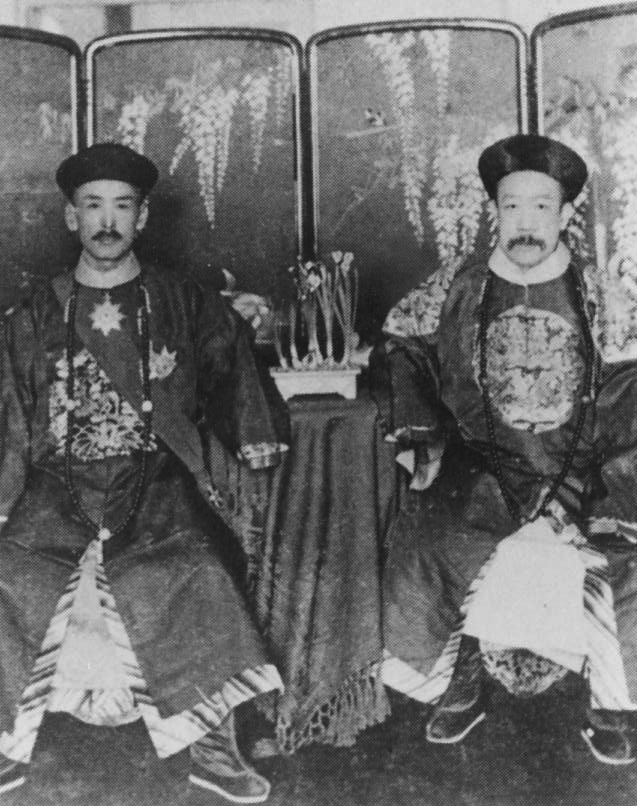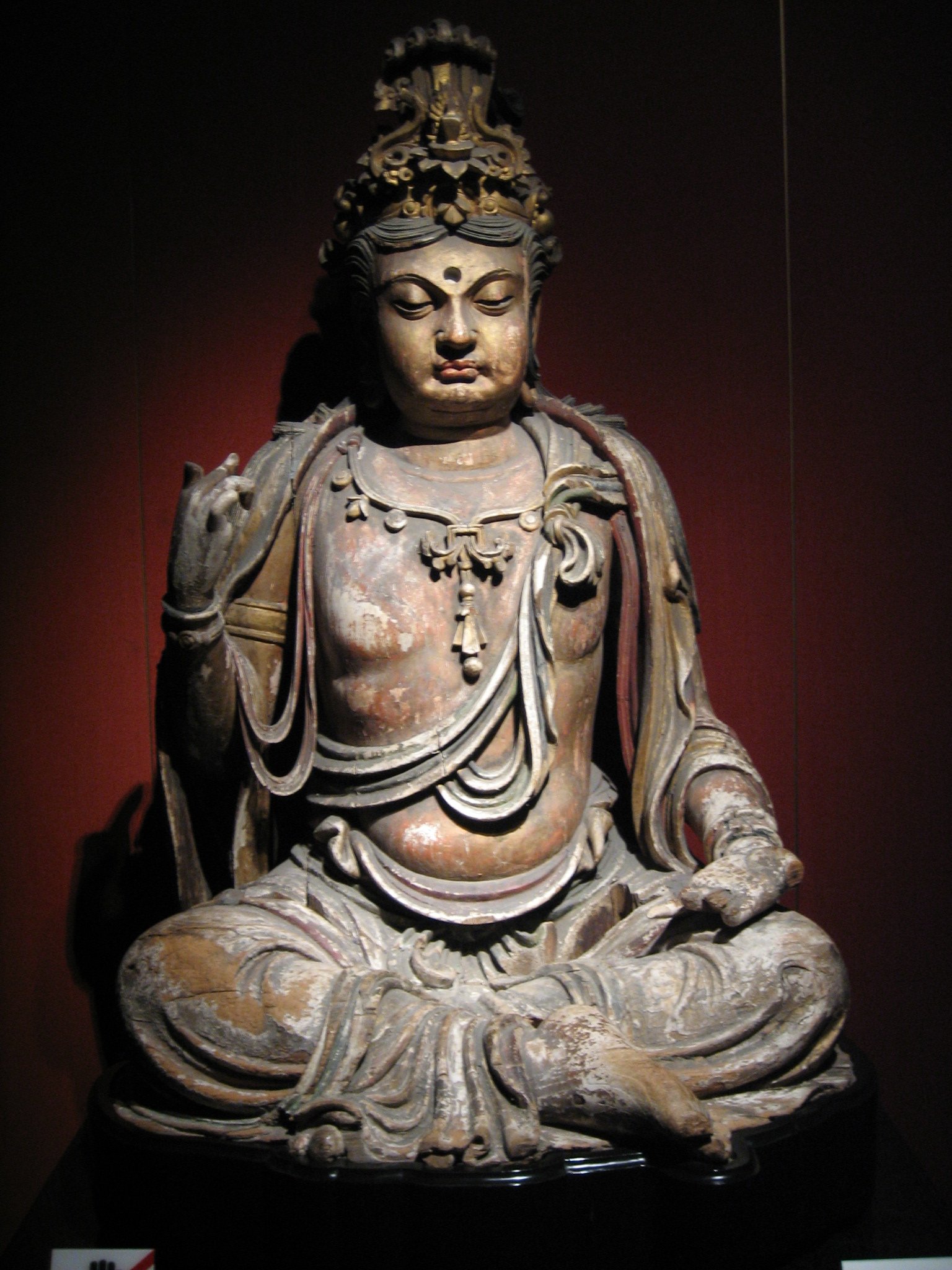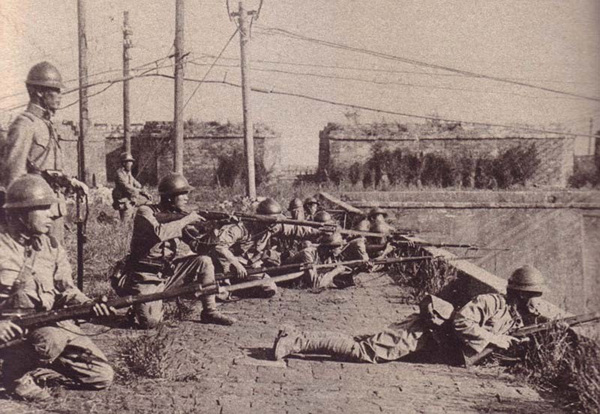|
Manchurian Nationalism
Manchurian nationalism or Manchu nationalism () refers to the ethnic nationalism of the Manchu people or the territorial nationalism of the inhabitants of Manchuria, regardless of ethnic origin. Overview While ruling China proper, the Manchu-led Qing dynasty had promoted a common, "Manchufying" identity among members of the Eight Banners, its primary military forces. Manchus were thus strongly associated with the Banner system, even though there were Mongol and Han Chinese Bannermen as well. The Banner identity was not yet racial or national, but still strongly divided the mostly Manchu Banner people from the primarily Han Chinese civilians of the Qing Empire. This divide grew with the overthrow of the Qing dynasty in 1912, and the foundation of the Republic of China. Thereafter, ethnic identity grew greatly in importance, and the Banner people had to decide whether to identify as Manchu, Han Chinese, or Mongol. Many of Mongol or Han Chinese ethnic origin opted to be classified ... [...More Info...] [...Related Items...] OR: [Wikipedia] [Google] [Baidu] |
Flag Of Manchukuo
The flag of the Empire of Manchuria had a yellow field with four horizontal stripes of different colors in the upper left corner. The colors of the flag were based on the colors on the Five Races Under One Union flags used by the Beiyang government, the Empire of China, and by the Fengtian clique. The flag was first established in '' Announcement of National Flag'' on March 1, 1932. In 2020, display of the flag was banned in Hong Kong under the national security law, together with eight other "independence flags." Description According to the '' Document of the Explanation of National Flag'' issued by the State Council of Manchukuo on February 24, 1933, the colors on the flag represent the four directions and center. The ''Study of Manchukuo National Flag'' published by state council of Manchukuo later also gave a representative based on Five Elements. * Yellow represents the center and the Manchus; rule of emperor of four directions and virtue of Ren in Confucianism, an ... [...More Info...] [...Related Items...] OR: [Wikipedia] [Google] [Baidu] |
Royalist Party
The Royalist Party (), officially the Society for Monarchical Constitutionalism (), was a monarchist political party and militant organization active in China during the early Republican Era. Supported by the Empire of Japan, its members sought to restore the Chinese monarchy under the Qing dynasty by launching insurgencies and advocating the secession of Manchuria and Inner Mongolia from the rest of China. Although it largely lacked a firm structure and consisted of loosely tied factions, the Royalist Party played a major role in Chinese politics during the 1910s. Names The Royalist Party was known by a variety of names, such as Manchu Loyalist Party, Restoration Party, Imperial Clan Party, Royal Clan Party, Reactionary Party, Party of the Ancestral Shrine of the Ruling Household, and Party of the Aisin Gioro Cult. History Foundation and early activities Having ruled China since the 17th century, the Manchu-led Qing dynasty started to collapse upon the Xinhai Revolution ... [...More Info...] [...Related Items...] OR: [Wikipedia] [Google] [Baidu] |
Northeast China
Northeast China () is a geographical region of China, consisting officially of three provinces Liaoning, Jilin and Heilongjiang. The heartland of the region is the Northeast China Plain, the largest plain in China with an area of over . The region is separated from the Russian Far East to the north and east by the Amur, Argun and Ussuri Rivers; from North Korea to the south by the Yalu and Tumen Rivers; and from the neighboring North China to the west by the Greater Khingan Range and Yan Mountains. It is also bounded by the Bohai Bay and Yellow Sea to the southwest, about away from East China's Jiaodong Peninsula across the Bohai Strait, due to be connected via a proposed undersea tunnel. The four prefectures of Inner Mongolia (which is part of North China) east of the Greater Khingan, i.e. Chifeng, Tongliao, Hinggan and Hulunbuir, are sometimes also considered broader parts of Northeast China, and together with the aforementioned three provinces formed what was h ... [...More Info...] [...Related Items...] OR: [Wikipedia] [Google] [Baidu] |
Local Ethnic Nationalism
Local ethnic nationalism, simply local nationalism or local ethnic chauvinism refers to the tendency of minority nationalities to secede from China. In mainland China, "local ethnic nationalism/chauvinism" contrasts with "Han nationalism" (or "Han chauvinism"), but both are perceived as divisive ideas. History From the 1930s to 1945, the Japanese imperialists proclaimed the idea of "national liberation" (民族解放, '' minzu jiefang'') and "national self-determination" (民族自決, ''minzu zijue'') to encourage the separation of Northeast China and North China from the rest of the country. During the Taiwan under Japanese rule, Xie Xuehong supported "Taiwan independence" (rather than pan-Chinese nationalism) by organizing the Taiwanese Communist Party in Shanghai. In the 1950s, Taiwan Democratic Self-Government League leader Xie supported Taiwanese self-determination than radical Chinese reunification, which led to her being denounced as a "local thnicnationalist" by ... [...More Info...] [...Related Items...] OR: [Wikipedia] [Google] [Baidu] |
Concordia Association
The Concordia Association of Manchukuo ( Japanese Shinjitai: 満州国協和会, Hepburn: ''Manshū-koku Kyōwakai'') was a political party in Manchukuo. Established to promote the ideals of Pan-Asianism and the creation of a multi-ethnic nation-state and to create a structure which would gradually replace military rule over Manchukuo with civilian control, the party was unable to fulfill its promise, and was eventually subverted into an instrument of totalitarian state-control by the Japanese Kwantung Army. Background The name "Concordia Association" came from the concept of the "concord of nationalities" (民族協和 ''mínzú xiéhe'') promoted by the Pan-Asian movement. By granting different peoples or nationalities their communal rights and limited self-determination under a centralized state structure, Manchukuo attempted to present itself as a nation-state in the mode of the Soviet "union of nationalities". Political theorist Tominaga Tadashi, author of ''Manshū ... [...More Info...] [...Related Items...] OR: [Wikipedia] [Google] [Baidu] |
Manchukuo
Manchukuo, officially known as the State of Manchuria prior to 1934 and the Empire of Great Manchuria thereafter, was a puppet state of the Empire of Japan in Northeast China that existed from 1932 until its dissolution in 1945. It was ostensibly founded as a republic, its territory consisting of the lands seized in the Japanese invasion of Manchuria; it was later declared to be a constitutional monarchy in 1934, though very little changed in the actual functioning of government. Manchukuo received limited diplomatic recognition, mostly from states aligned with the Axis powers, with its existence widely seen as illegitimate. The region now known as Manchuria had historically been the homeland of the Manchu people, though by the 20th century they had long since become a minority in the region, with Han Chinese constituting by far the largest ethnic group. The Manchu-led Qing dynasty, which had governed China since 17th century, was overthrown with the permanent abolition of the ... [...More Info...] [...Related Items...] OR: [Wikipedia] [Google] [Baidu] |
Shenyang
Shenyang,; ; Mandarin pronunciation: ; formerly known as Fengtian formerly known by its Manchu language, Manchu name Mukden, is a sub-provincial city in China and the list of capitals in China#Province capitals, provincial capital of Liaoning province. It is the province's most populous city with a population of 9,070,093 as of the 2020 Chinese census, 2020 census, also making it the largest city in Northeast China by urban population, and the second-largest by metropolitan population (behind Harbin). The Shenyang metropolitan area is one of the major megalopolises in China, with a population of over 23 million. The city's administrative region includes the ten metropolitan district (China), districts, the county-level city of Xinmin, Liaoning, Xinmin, and the counties of the People's Republic of China, counties of Kangping County, Kangping and Faku County, Faku. Shenyang has been controlled by numerous different states and peoples during its history. In the 14th century, the ... [...More Info...] [...Related Items...] OR: [Wikipedia] [Google] [Baidu] |
Puwei
Puwei (; 30 December 1880 – 10 October 1936), courtesy name Shaoyuan, was a Manchu people, Manchu prince and statesman of the late Qing dynasty. He was a member of the Prince Gong (peerage)#Yixin's line, Prince Gong peerage, and held the title from 1898 until his death. Life Life during the Qing dynasty He was a part of the House of Aisin-Gioro. Puwei's biological father was Zaiying, the second son of Prince Gong, Yixin. Since Yixin's eldest son Zaicheng died without an heir, Puwei was adopted as Zaicheng's son by the Empress Dowager Cixi's decree. After the death of Zaicheng, Puwei assumed the title of prince and became the second generation Prince Gong. Puwei was also appointed as the minister of anti-smoking. During the 1911 Revolution, he organized the Royalist Party with Shanqi and others in an attempt to restore the Qing Dynasty, and he refused to sign the Imperial Edict of the Abdication of the Qing Emperor, abdication edict. It is rumored he said "As long as I'm her ... [...More Info...] [...Related Items...] OR: [Wikipedia] [Google] [Baidu] |
Japanese Invasion Of Manchuria
The Empire of Japan's Kwantung Army invaded the Manchuria region of the Republic of China on 18 September 1931, immediately following the Mukden incident, a false flag event staged by Japanese military personnel as a pretext to invade. At the war's end in February 1932, the Japanese established the puppet state of Manchukuo. The occupation lasted until mid-August 1945, towards the end of the Second World War, in the face of an onslaught by the Soviet Union and Mongolia during the Manchurian Strategic Offensive Operation. With the invasion having attracted great international attention, the League of Nations produced the Lytton Commission (headed by British politician Victor Bulwer-Lytton) to evaluate the situation, with the organization delivering its findings in October 1932. Its findings and recommendations that the Japanese puppet state of Manchukuo not be recognized and the return of Manchuria to Chinese sovereignty prompted the Japanese government to withdraw from the L ... [...More Info...] [...Related Items...] OR: [Wikipedia] [Google] [Baidu] |
Zhang Zuolin
Zhang Zuolin; courtesy name Yuting ( zh, c=雨亭, p=Yǔtíng, labels=no) and nicknamed Zhang Laogang ( zh, c=張老疙瘩, p=Zhāng Lǎo Gēda, labels=no) (March 19, 1875June 4, 1928) was a Chinese warlord who ruled Manchuria from 1916 to 1928 and led the Fengtian clique, one of the most powerful factions during the Warlord Era. In 1927, he became the leader of the Beiyang government and was declared Generalissimo of the Republic of China. Born to a poor peasant's family in Manchuria, Zhang became a prominent bandit in the region in the 1890s. After the Boxer Rebellion, his troops became a regiment of the Qing dynasty's army, and during the Russo-Japanese War, they were hired by the Japanese Army as mercenaries. During the 1911 Revolution, Zhang initially fought against the revolutionaries, and after the foundation of the Republic of China supported the Beiyang government. Zhang founded the Fengtian clique and gradually expanded his Northeastern Army, which established his ... [...More Info...] [...Related Items...] OR: [Wikipedia] [Google] [Baidu] |
Kwantung Army
The Kwantung Army (Japanese language, Japanese: 関東軍, ''Kantō-gun'') was a Armies of the Imperial Japanese Army, general army of the Imperial Japanese Army from 1919 to 1945. The Kwantung Army was formed in 1906 as a security force for the Kwantung Leased Territory and South Manchurian Railway Zone after the Russo-Japanese War of 1904–1905 and expanded into an army group during the Interwar period to support Japanese interests in Republic of China (1912-1949), China, Manchuria, and Mongolia. The Kwantung Army became the most prestigious command in the Imperial Japanese Army, and many of its personnel won promotions to high positions in the Japanese military and civil government, including Hideki Tōjō and Seishirō Itagaki. The Kwantung Army was largely responsible for the establishment of the List of World War II puppet states#Japan , Japanese puppet-state of Manchukuo in Manchuria and functioned as one of the main Japanese fighting forces during the 1937–1945 Second ... [...More Info...] [...Related Items...] OR: [Wikipedia] [Google] [Baidu] |
Empire Of Japan
The Empire of Japan, also known as the Japanese Empire or Imperial Japan, was the Japanese nation state that existed from the Meiji Restoration on January 3, 1868, until the Constitution of Japan took effect on May 3, 1947. From Japan–Korea Treaty of 1910, 1910 to Japanese Instrument of Surrender, 1945, it included the Japanese archipelago, the Kuril Islands, Kurils, Karafuto Prefecture, Karafuto, Korea under Japanese rule, Korea, and Taiwan under Japanese rule, Taiwan. The South Seas Mandate and Foreign concessions in China#List of concessions, concessions such as the Kwantung Leased Territory were ''de jure'' not internal parts of the empire but dependent territories. In the closing stages of World War II, with Japan defeated alongside the rest of the Axis powers, the Japanese Instrument of Surrender, formalized surrender was issued on September 2, 1945, in compliance with the Potsdam Declaration of the Allies of World War II, Allies, and the empire's territory subsequent ... [...More Info...] [...Related Items...] OR: [Wikipedia] [Google] [Baidu] |





